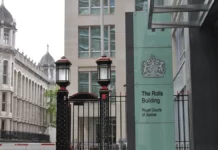ABUJA – Vaccine passports, a few months ago, were only the figments of a wild imagination. Today, we are tackling new COVID-19 related issues, subsequent to inequities in vaccine distribution and cross-border vaccine politics. Now that vaccine passports exist and are advancing in the developed world, let us discuss how they could evoke more problems around the globe.
A vaccine passport is “proof of being fully vaccinated” against the COVID-19 viral infection. Linked to the idea that the world has a dire need to “return to normal,” a vaccine passport will allow fully vaccinated people to take that big step into normalcy. This comes after months of abnormal socialization induced by lockdown measures to curb the spread of the novel coronavirus.
At the onset of the global pandemic, social distancing was introduced as an emergency preventative measure and was radically adopted by nations. It however crippled global movements, particularly air travel and other sectors of the tourism industry. Intrinsically, mandating a vaccine passport will force a skeptic to get vaccinated against COVID-19, if they are to access certain social freedoms.
The scope of the problem
The first rollout of a vaccine passport scheme took place in Israel on February 21. The proof of vaccination will be adopted by restaurants, gyms, sports stadiums, and other venues that require the documents as evidence that a person has been vaccinated against the virus.
But beyond the obvious ethical consequences of warranting a vaccine passport, like unlawful discrimination of persons, is the notion that already stringent immigration laws and policies could become even more draconian.
Although the United States under the Biden-Harris administration has said that it will not mandate vaccine passports, public places could still require the unique identifier as proof of vaccination from the general public. White House Press Secretary, Jen Psaki, affirmed that “a determination or development of a vaccine passport or whatever you call it will be driven by the private sector.”
This private use may also extend to international travel across air, sea, and land border, so political agendas will still intersect.
On April 4, The Yorkshire Post reported Prime Minister of the United Kingdom (UK), Boris Johnson’s plans to develop a “COVID-19 status certification.” The scheme will enable the safe return of mass gatherings and indoor events as UK lockdown restrictions ease.
Japan is also preparing to launch a “digital vaccine passport” that can be accessed through an app on a mobile phone, according to a report from Reuters. China and the European Union have also embraced the idea of a vaccine passport.
A global template for what the passport’s use could look like is Israel’s ‘Green Pass’ – government-endorsed health documentation introduced earlier in the year. When put into perspective, this idea in its prime is quite elitist. It is not surprising that the countries already prioritizing conversations about the need for vaccine passports are in the developed world.
While these countries have led the world in terms of their number of already vaccinated citizens, issues with the demand and supply of vaccines for low-income countries are still under active deliberation at the World Trade Organization (WTO).
By focusing on why the world must work to guarantee equal access to COVID-19 vaccines for low-income earning countries, WTO Director-General, Dr. Ngozi Okonjo-Iwaela, provided useful statistics on vaccine distribution. “With only 0.1% of globally administered vaccines going to low-income countries, global herd immunity will take a long time to be achieved. We need to change the pace in which low-income countries get the vaccines,” an excerpt from her statement at the 2021 International Monetary Fund (IMF) Spring Meetings read.
Disadvantaged nations struggle to afford vaccines. When afforded, they are unable to access sufficient doses and are also contending with the issue of vaccine skepticism. Fears arising from COVID-19 misinformation to social engineering along religious and political lines have also triggered the rise of anti-vaxxers.
There are genuine concerns about COVID-19 vaccine production, like fully contextualizing the rushed production timelines, lack of open-source experimentation documentation, and unknown variables like whether or not being fully vaccinated will guarantee immunity from the virus.
An objective truth is that there is no normal to return to. The new ways of living and working have already become a part of our everyday life and must be considered ahead of the sentiment that a travel document will catapult the world into a pre-pandemic state.
The global pandemic is one anxiety too many
Since the onset of the global pandemic, there has been a rise in data vulnerabilities, up to tracking the progress of some government’s vaccination programs. Having a centralized database for vaccinated people will exacerbate this problem and create a new playing field for hackers. Already counterfeit vaccine passports are a growing concept, and Cybersecurity experts in Israel have spotted tens of thousands of fake green passes.
While mind-mapping ‘what could be next’ along the lines of a global pandemic, vaccine rollout, and vaccine passports, many have cited China where control manifests like a Trojan horse. “Vaccine passports are 1 step behind social credit systems. In China, there are people that can’t get toilet paper from a public toilet because their score isn’t high enough. They get points for doing what they are told and obeying the CCP,” a certain Paul Williams wrote on Twitter. Already, China has indicated an interest in providing support and technical knowledge for the international vaccine passport platform, while the WHO will draft the rules, procedures, and data specifications.
In some parts of the world like the US and UK, opposition to vaccine passports is existent. “Health Passports Break the Nuremberg Code” a group of protesters placarded on the streets of Oxford on Sunday morning. The US Freedom Reclamation Project also released a digital tracker for US states in support of the removal of mask mandates and prohibition against vaccine passports.
It is noteworthy that there are documented effects of the prolonged lockdowns on business and individual life. These include a fast-dwindling global economy, widening gender inequality gaps, loss of academic and/or professional opportunities, and increased negative impact on emotional and mental health across age groups.
The world must therefore unite in its approach to reopening the doors of social freedom. Methodological approaches like localizing the needs of various populations and aggregating policy priorities on a country-to-country basis are advised.
This is not the first time that documentation has been required for health-related checks across borders, but when tied to a plethora of unresolved disparities from the pandemic, mandating COVID-19 vaccine passports could potentially become a first in creating segregated classes of citizens based on health-related privileges.












Awesome! This piece addresses salient points, risks and issues we need to evaluate as the world moves on, while adjusting to the effects of COVID-19 on society and businesses within the current vaccine era.
On a personal note, I recently registered to take the one shot J&J vaccine which is now being reevaluated by regulators for possible adverse events of blood clothing on some recipients. I will probably have to wait for the official findings and recommendations, take alternatives or abort the entire vaccines. Where does this leave me? COVID-19 and it’s variants are game changers, and the world needs to take a step back before mandating any vaccine passports. What about those that developed natural immunity to it without the vaccines. How can we measure that and not complicate things further for those in the category?
Please keep up the good work, Evelyn!